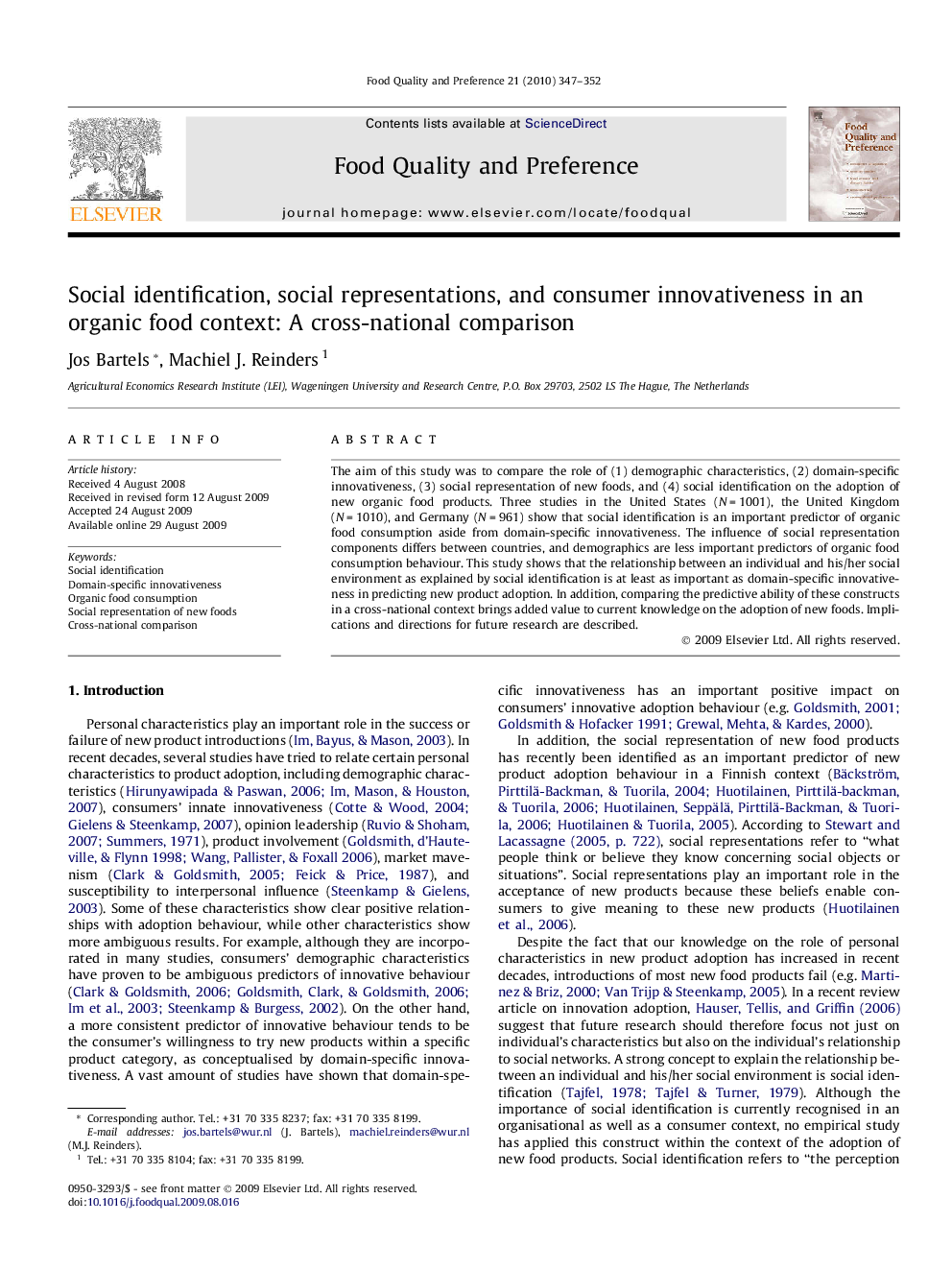| Article ID | Journal | Published Year | Pages | File Type |
|---|---|---|---|---|
| 4317756 | Food Quality and Preference | 2010 | 6 Pages |
The aim of this study was to compare the role of (1) demographic characteristics, (2) domain-specific innovativeness, (3) social representation of new foods, and (4) social identification on the adoption of new organic food products. Three studies in the United States (N = 1001), the United Kingdom (N = 1010), and Germany (N = 961) show that social identification is an important predictor of organic food consumption aside from domain-specific innovativeness. The influence of social representation components differs between countries, and demographics are less important predictors of organic food consumption behaviour. This study shows that the relationship between an individual and his/her social environment as explained by social identification is at least as important as domain-specific innovativeness in predicting new product adoption. In addition, comparing the predictive ability of these constructs in a cross-national context brings added value to current knowledge on the adoption of new foods. Implications and directions for future research are described.
